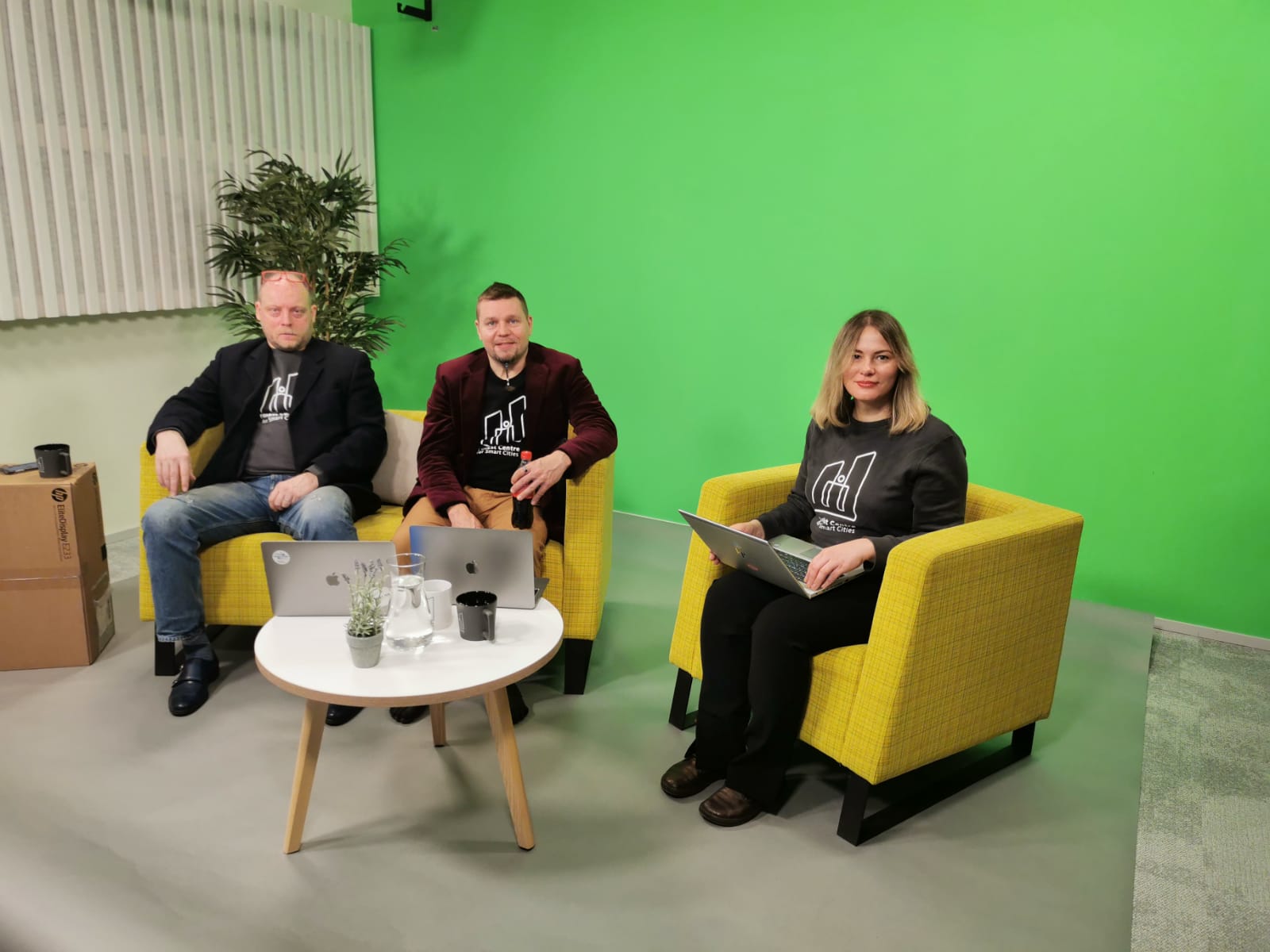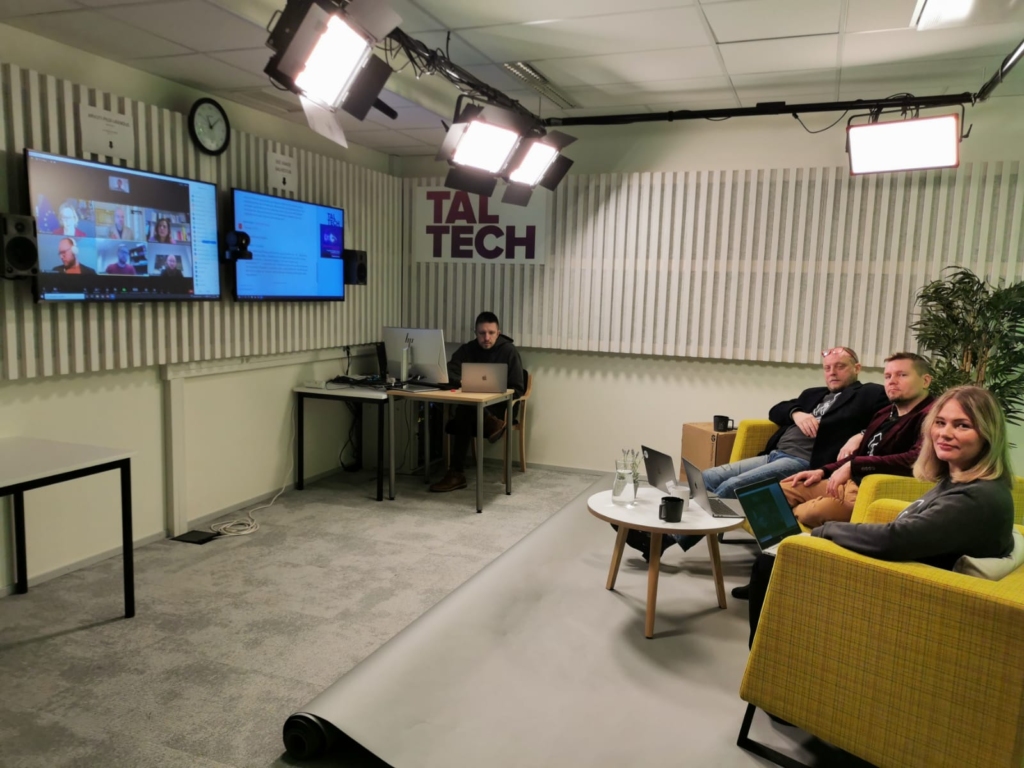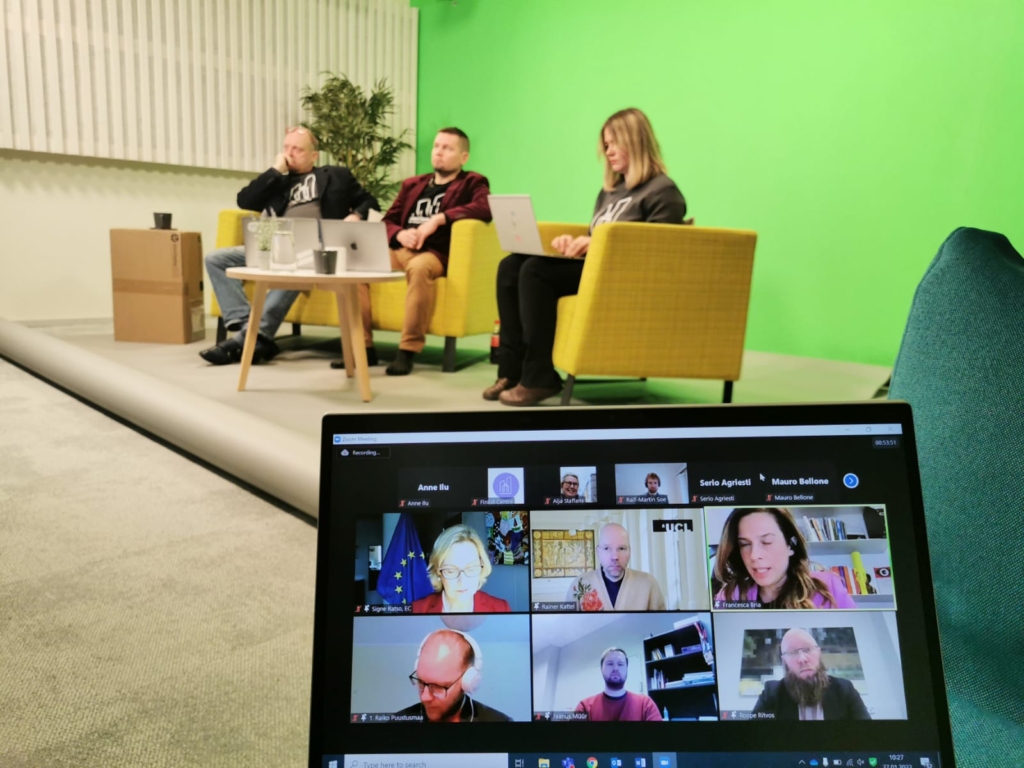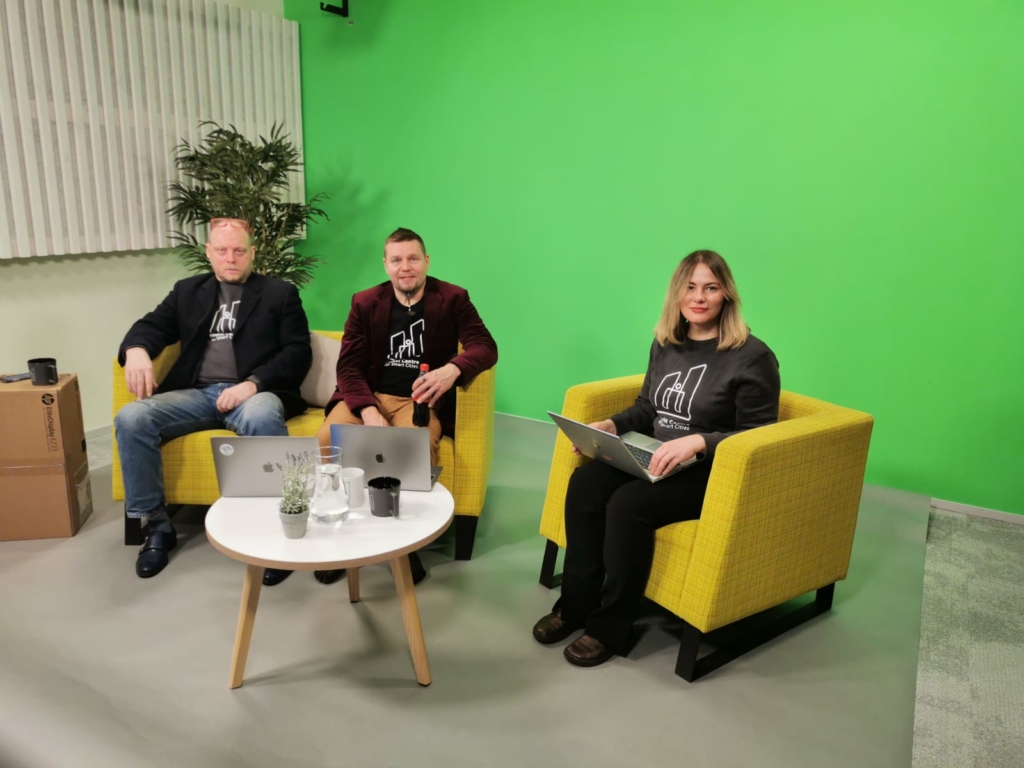2nd Smart City Exchange Forum
Kuupäev: 27.01.2022
Toimumiskoht: Tallinn | online
Smart cities for citizens: Tangible Smart City solutions
The 2nd Smart City Exchange Forum focused on the role of the citizens to create tangible smart city solutions. This Exchange Forum consisted of three-panel discussions: The first panel reflected around on how the smart cities enable citizen-centric governance, the second on digital tools and citizen inputs for creating better urban spaces and the third on how citizens can be involved with cities to reach sustainable development goals.
The Exchange Forum was a space to question the role of smart cities in the future of urban life. Who are smart cities for? How can technological solutions improve citizens quality of life? How does research in FinEst Centre for Smart Cities support the transition towards smarter and more sustainable cities?
The Exchange Forum brought together examples from tangible smart city solutions, from practitioners, city representatives and research and institutions. Many of the people involved are also part of the Piloting Programmes of FinEst Centre.
The Forum was currently an online event due to the COVID pandemics but with the hope of becoming an important meeting point for all the smart city stakeholders from research, local and national governments, citizen communities and private sector partners in near future.
Panelists and moderators
1st panel “Reflecting on the values created by citizen centric smart governance”. Moderator: Rainer Kattel

Rainer Kattel
Professor of Innovation and Public Governance at Institute for Innovation and Public Purpose, UCL. Adjunct professor at Ragnar Nurkse Department of Innovation and Governance at Taltech

Deputy Director-General at the European Commission’s Directorate-General for Research and Innovation

Roope Ritvos
Director of Research Operations in Demos Helsinki
“Cities are the main stage for the play where we, the people, try to solve the global climate and inequality crises. Sometimes adding smartness, testing innovations, and asking citizens for opinions leads to outcomes that hinder, not help, to solve these crises. We need radically improved ways for joint action to meet the urgency needed.”

Jaanus Müür
PhD student at Tallinn University of Technology, Tallinn
“I think oftentimes cities pilot different smart solutions just to look innovative to their citizens. If we have a closer look, cities do not learn much from such pilots. If city administrations really aim to improve public services and the life of the residents then they need to be more inclusive and think more about the design of the pilots.”

Francesca Bria
President of the Italian National Innovation Fund, CDP Venture Capital.
“We need to put technology and data at the service of people and the ecological transition: a digital humanism preserving citizens’ digital rights and their data sovereignty.”

Raiko Puustusmaa
Housing Expert in Estonian Ministry of Economic Affairs and Communication
„The feel of belonging and connection with the neighborhood creates the strongest motivation that thrives local engagement in city development. The question is on how to create and convert that motivation into better homes and well-planned city.“

Aija Staffans
Senior Research Fellow at Aalto University, Finland
“Together we make the smart city.”

Maarit Kahila-Tani
CEO of Maptionnaire, a digital tool for creating map-based surveys
“Cities are designed and built for people, therefore we should embrace the knowledge people have of their living environment.”

Gea Kangilaski
Vice-mayor of Tartu for urban planning

Kristi Grišakov
Researcher at FinEst Centre for Smart Cities and lecturer at the TalTech Academy of Architecture and Urban Studies
“In this era revolving around emphasising individual needs, it is very easy to forget how to co-create shared futures. Public participation is similar to any other skill, that needs to be trained to become habitual culture.”

Filip Kjellgren
Chief strategist Future Mobility Systems at Vinnova – Sweden’s Innovation Agency
“To create a shift in the society that really sticks, we need to start with the wishes and desires of people.”

Pontus Westerberg
Programme manager at UN-Habitat, the UN agency for sustainable cities
He leads initiatives on digital technologies, people-centered smart cities and open innovation

Einari Kisel
Head of Partnerships and Strategy at FinEst Centre and Member of Supervisory Boards of Eesti Energia AS and Elektrilevi OÜ
„Ideally should all citizens be active to voice out their views about their city developments. Cities should strive to apply Swiss democracy model to support collective decision-making processes. It sounds easy, but would also mean a shift of powers in the cities.“

Hadi Ghanbari
Postdoctoral researcher at the Department of Information and Service Management, Aalto University School of Business, Finland
“To develop sustainable smart city solutions, we need digital technologies. But more importantly, we must encourage and empower citizens, regardless of their background, to participate in developing and using those solutions.”

Teemu Peltonen
Project Manager in Smart City and Mobility solutions, City of Turku
“The smart city technology is here and now we need brave and smart decisions to use it for more people and environment friendly cities.”

Karlis Goldstein
Energy policy assistant of Energy Commissioner at European Commission
“Big city or a small village, no matter the geographic location of the space, the places that we inhabit are the ones where we create and leave our trace. So let’s get cooking.”

Krista Kampus
Head of Strategy Development and International Cooperation at Tallinn Strategy Centre
“The smart city is not about the efficiency of the deployment of innovative solutions, but about how it contributes towards achieving the value-based goals of sustainable urban development, such as climate and social resilience and co-creation with the citizens.”
1st Smart City Exchange Forum
The first forum was the culmination of a years work and progress by the members of the FinEst Centre for Smart Cities’ research streams. As the COVID-19 pandemic hit, we were forced to revisit the 1st Smart City Conference, originally planned for 5th of November 2020 in Tallinn, and transform it into the online forum. The forum eventually took place online on the 21st of January 2021.
This event gathers content from a series of smaller talks and seminars as well as the most relevant research of FinEst Centre. Forum gave the opportunity to share ideas and plans as well as their research and find new connections with practitioners and cities.



